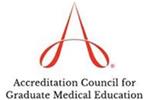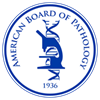Pathology Residency
The Corewell Health's Pathology Department offers a comprehensive, four-year training program in combined Anatomic and Clinical Pathology, which is fully accredited by the Accreditation Council for Graduate Medical Education (ACGME). We have an all-encompassing teaching staff composed of 32 primary and sub-specialty Board certified pathologists, 7 Ph.D.s and a vast array of certified laboratory technologists and scientists.
Corewell Health William Beaumont University Hospital, Royal Oak's campus, a tertiary-care facility with approximately 1,100 in-patient beds, hosts 37 accredited residency and fellowship training programs with more than 400 residents and fellows, and is the primary teaching facility for the Oakland University William Beaumont School of Medicine. It has one of the highest volumes in the country for annual hospital admissions (56,233), surgeries (47,326), outpatient visits (630,306), and births (5,082). Over 91 medical and surgical specialties are represented on the medical staff. This provides a large volume of diverse material to both our clinical and anatomic pathology laboratories: Approximately 75,000 surgical cases annually and 87,000 cytology specimens, of which 8,072 are obtained from non-gynecologic sites. The Corewell Health Pathology Laboratory handles over 10,000,000 tests annually. Interested in learning more?
What qualities do pathologists have?
In contrast to popular belief, pathologists are not odd, introverted individuals that perform autopsies. Rather, we comprise a group of highly specialized medical physicians who in the most basic sense are the “Doctor’s Doctor”. We are silent members of a complex healthcare team functioning behind the scene and our main charge is to ensure that only the highest quality test results are provided to those healthcare providers directly caring for patients. Although we don’t interact daily with patients, we sincerely care about their health and well-being. As such, we play a pivotal role within the healthcare system to facilitate connecting all pieces of the puzzle so that each healthcare provider receives accurate, precise information to optimize patient care.
Pathologists have a love of basic science and constantly strive to apply such principles to the diagnosis and treatment of disease processes. We provide expertise in all facets of laboratory medicine. Anatomic pathologists are experts at understanding and diagnosing disease processes at the macroscopic (i.e. naked eye), microscopic (microscope), and ultramicroscopic (electron microscopy) tissue level. Clinical pathologists function very similar to anatomic pathologists when studying diseases of the blood, bone marrow, lymph nodes, and spleen. Clinical pathologists also provide oversight to the quality of all other laboratory tests performed on blood, body fluids, and tissue. Clinical pathologists develop and maintain diagnostic tests to provide personalized therapeutic options for each patient, and continually develop improved, stream-lined processes applying the principles of quality assurance and systems analysis.
Pathologists have a challenging career that requires a sincere devotion to continued education and learning. Pathologists must have excellent verbal, non-verbal, and written communication skills since we are the pivotal link to accurately disseminate information to all other healthcare providers.
Why should I pursue pathology residency training at Corewell Health System?
Our residency program is unique. As one of the largest and most prestigious teaching hospitals in the country, our high patient volume and diversity of cases provides a sundry of material to develop skill, experience, and efficiency in all
areas of laboratory medicine. Our teaching staff comprises 44 primary and sub-specialty Board-certified pathologists, 18 Ph.D.s and a vast array of certified laboratory technologists and scientists all committed to training competent pathologists.
By design, our program only accepts 3 new residents each year. This small class size, coupled with our breadth of teaching staff, and high volume and diversity of cases provides a one of a kind approach to resident education. You will
receive the highest quality education and training in an environment that provides personalized supervision, attention, and guidance. Following completion of this training program you will have the competitive edge needed to secure highly
sought-after fellowships and career opportunities.
How is the pathology residency training program structured?
By design, our residency training program provides equal training time in the major disciplines of anatomic and clinical pathology. Anatomic pathology training (24 months) includes autopsy pathology, general surgical pathology, cytopathology, dermatopathology, neuropathology, pediatric and perinatal pathology, molecular pathology, clinical and molecular cytogenetics, electron microscopy, and forensic pathology. Clinical pathology training (24 months) includes hematopathology, coagulation, transfusion medicine, clinical chemistry, toxicology, analytical cytometry, image analysis, immunology, cytogenetics, molecular pathology, and microbiology (bacteriology, parasitology, mycology, mycobacteriology, virology).
The first and second years of training are solely devoted to anatomic and clinical pathology, respectively. The third and fourth years of training are a combination of advanced rotations in anatomic and clinical pathology, out-side rotations in forensic pathology (Wayne County Medical Examiner’s Office) and pediatric pathology (Detroit’s Children’s Hospital of Michigan), and electives (3 months) to further nourish focused areas of interest.
To ensure mastery of pathology, you will be immersed into a variety of learning modalities during your four years of training - formal didactic lectures, weekly departmental and inter-departmental conferences, multidisciplinary conferences and tumor boards.
Upon completion of this training program, you will be eligible to take the primary certifying examination in anatomic and clinical pathology by the American Board of Pathology. Each year, resident’s take the Resident In-Service Examination (RISE) sponsored by the American Society for Clinical Pathology. Performance on the RISE is discussed individually with each resident to ensure no deficits in knowledge base. Resident performance on the RISE is a semi-qualitative measure that predicts success on the American Board of Pathology examination. Resident’s in our training program perform exceptionally well on the RISE, scoring well above the national average.
How do I apply for a Corewell Health Pathology Residency?
Applications should be submitted via the Electronic Residency Application Service (ERAS). Three positions are offered each year. The program participates with the National Resident Matching Program (NRMP). The deadline for application is December 15th annually.
Although a strong educational background is required, we do not impose strict “cut-offs” in terms of grades and scores when reviewing applications. All interested candidates are encouraged to apply. Personal interviews are required and take place between October 1st and January 15th each year.
Beaumont Pathology Residency
For application and general program information, please call 248-898-1256.
Sandy Shearer
Program Coordinator
Jacqueline K. Macknis, M.D.
Director, Resident Training in Pathology
Beaumont Health | 3601 West Thirteen Mile Road
Royal Oak, MI 48073-6769




